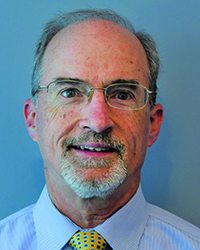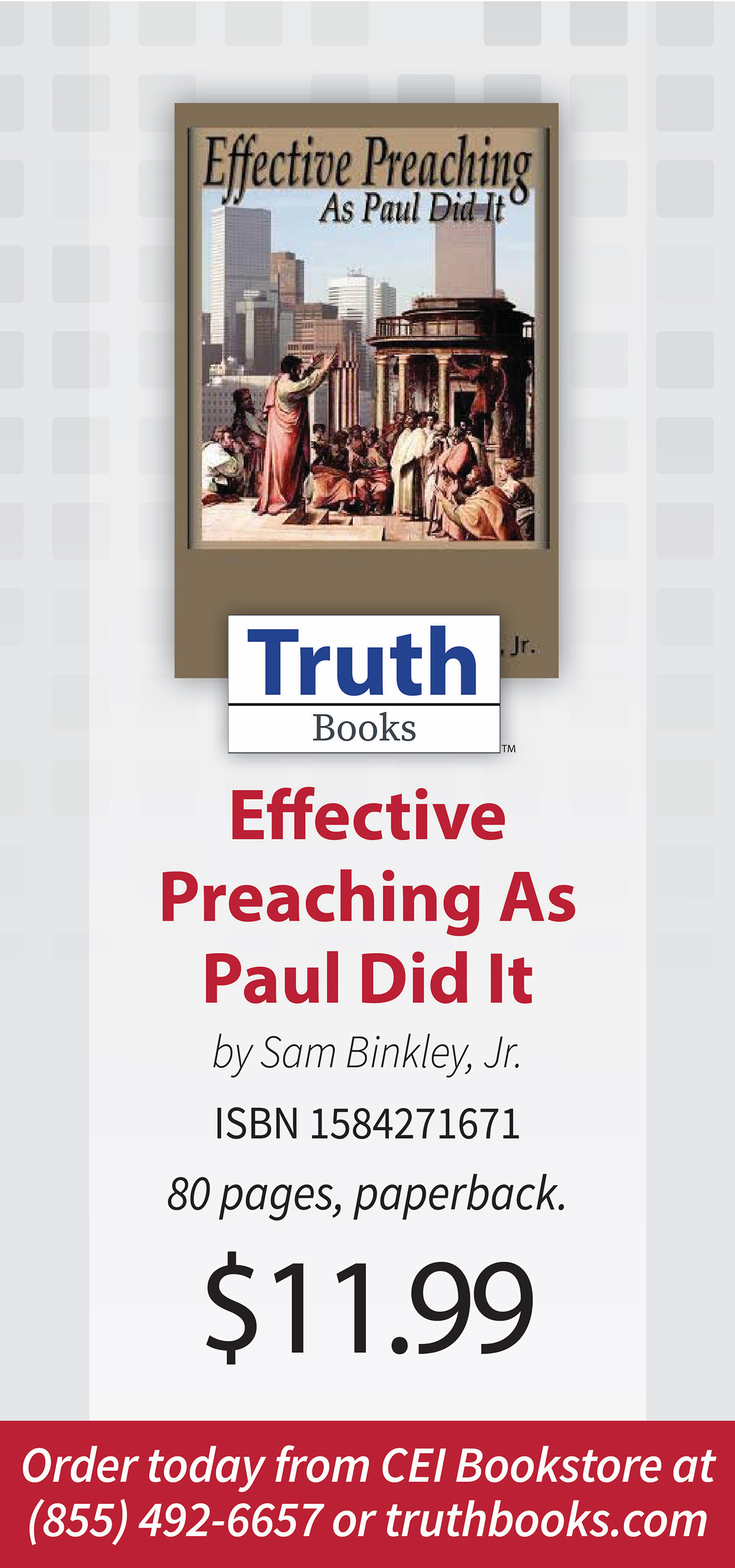

by Tim Reeves
Synopsis: As a young man, Bill Reeves recognized the need for sound preaching, especially in Spanish, and spent his life responding to that "Macedonian call."
Dad did not come from a "preaching family." There was no expectation that he naturally would become a preacher. When he decided to preach, it was entirely by personal choice, conviction, and commitment. Dad was born and grew up in Covington, Kentucky, where his family belonged to a small congregation, and where, in due time, Dad was also born again. One situation in that church must have had a profound influence on Dad's later decision to preach. He related that, while attending as a teenager, the church did not have a full-time, supported preacher. Instead, the brethren relied upon a brother who did most (if not all) of the preaching of sermons, who was himself busily employed as a school teacher. Dad had the distinct memory of thinking, "Someone should be helping that brother with the preaching!" However, he never thought that he was capable of offering such assistance since he felt he did not possess the qualifications for that function. No doubt, that sense of "ought to help" in that work lingered with him.
Upon graduation from high school, Dad was presented with the opportunity to attend David Lipscomb College in Nashville, Tennessee. He was able to afford this through the generosity of his aunt Nancy Griggs, a faithful, giving Christian of Warner Robbins, Georgia. At college, Dad applied himself, feeling a sense of responsibility, or debt owed to her. As he began to receive specific and more in-depth Bible instruction, he developed a sense of duty in passing on what he had learned of the greatest truth in the world, the gospel of Jesus Christ. It was here that his decision to preach became a whole-hearted commitment.
It was also at Lipscomb that Dad met his two most important co-workers in the gospel. The first was our mother, Twilah Ellen Werner, of Fredericktown, Ohio. The second was Wayne Partain, a tall, lanky, country boy from Oklahoma. Together, they became life-long compadres in the Spanish work of the kingdom. They not only reinforced each other's decision to preach but, crucially, to pursue preaching in Spanish. Neither had any Hispanic blood, ties, or background; instead, it was because of learning the need for Spanish-speaking evangelists and becoming deeply impressed with a sense of obligation that they committed themselves to that work. They realized that they came from a culture that had been blessed with rich opportunities to come to know God and His word and, therefore, they needed to share those benefits with a part of the world that had less opportunity for such.
It was apparent from the start that Dad did not go into preaching for the glamour of it! Certainly, he was not seeking an easy life. Instead, Dad began by moving to Mexico and even starting a family there—doing without many of the luxuries and comforts that we today consider necessities of life. When Mexican law changed, he just moved back over the border along the Rio Grande Valley in Texas. There, often, in one town after another, Dad would have his support cut off by some of the brethren when they learned of his convictions against the practice of institutionalism in churches. He had to resort to making tents to support his now-growing family, and he did so by painting houses! His biblical views were not based on convenience—but conviction.
In doing the work of an evangelist, Dad was willing to accept the domestic disruption of pulling up tent pegs and moving to wherever he believed that his efforts were most needed. After working in Texas for several years, he moved to Miami because he learned of a greater need there. There, in one particular, Dad practiced what he preached by taking into his now large family two "orphaned" refugee teenagers from Cuba, at the beginning of Castro's regime, instead of allowing them to be put into an institution. After five years, he returned to Texas, moving to San Antonio to help ground a Spanish congregation that continues to this day.
In 1968, he received a call from my grandparents, the Werners, to "Come to Ohio and help us!" They had been vexed by the introduction of institutionalism and the social gospel into their congregation. They had been discussing the problem with other brethren in area congregations that shared similar concerns, so they called Dad, asking his counsel. In short, he told them they could simply start a congregation that stood on conservative, scriptural principles. After more desperate calls, Dad agreed to come for two years to begin a conservative group. Two years grew into six, and today, the active Fredericktown congregation is a living testament to his sacrificial efforts.
Dad's preaching was characterized by intentionally focusing on the text of Scripture, often defining and elucidating the meaning of the very words. His mantra was, "Words have meaning! Don't just read over them for their religious sound!" He definitely preferred expository over topical preaching, though he granted a place for the latter. He did not use a text merely as a catchy jumping-off place for "inspired" thoughts of his own. He knew that the best sermons were those, either contained in, or meant to be brought out from, the Scriptures themselves. In his later years, he decried the lack of substantive preaching in some he heard. In his old age, he was thankful to be still able to preach to supply some of what was lacking.
There were several brethren who attended Dad's funeral who had become faithful Christians because he had studied with them at their kitchen tables, and not merely preached to them from the pulpit.
During his eulogy at Dad's funeral, brother Reuben Amador related that Dad was present when he was baptized as a young man in Sinton, Texas. On that occasion, Dad spoke directly to Reuben, expressing confidence that he had both the heart for and ability to preach, especially the gift of being bilingual, and that he needed to use those for the sake of the kingdom. Reuben said those words had a tremendous impact on his decision to preach.
Interestingly, Dad never directly expressed his desire or judgment that any of his sons should preach. Instead, it was his example of service that he lived before us that motivated us to preach the gospel, becoming convicted that if one could, then one should.
Dad was a prolific writer, especially in Spanish, knowing the lasting and widespread power of the written word. He wrote tracts on many subjects, booklets of answers to many specific Bible questions—the result of actual correspondence, class lesson guides, commentaries on every book of the New Testament, and refutations of false teaching, all in Spanish. Additionally, he contributed many articles to magazines and books in English. During last days, after his voice was no longer heard in the pulpit, Dad's work consisted of daily compositions for his weekly blog of spiritual reflections on Bible teachings. These writings will continue to bear fruit even after his influence fades with the passing of each generation that knew him.
May God see fit to continue to bless Dad's efforts that were done for the good of His kingdom. May anyone reading this article who has ever had the thought, "Someone ought to help with the preaching!", do as Dad did and become that someone.
Author Bio: Tim has worked with the Bangor Church of Christ in Bangor, ME for one year. He and his wife, Laura, have eight children. The church website is bangorchurchofchrist.com. He can be reached at tenreeves@gmail.com.
